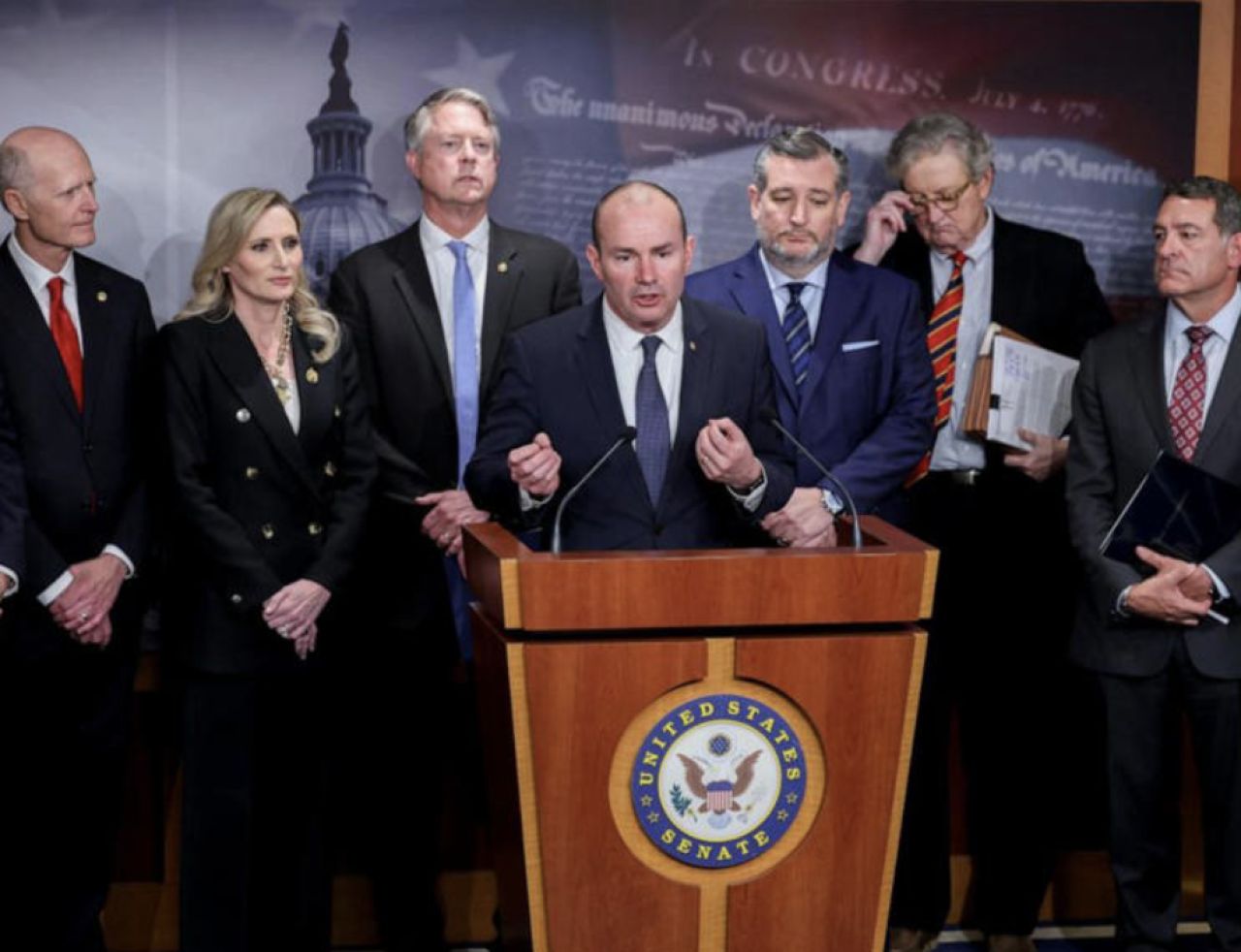Senators are gearing up for a showdown on Wednesday, mostly split along party lines, to decide whether to go ahead with a full-blown trial of Homeland Security Secretary Alejandro Mayorkas over his management of immigration policy and the southern border.
House GOP managers dropped off two articles of impeachment against Mayorkas on Tuesday, setting the stage for senators to be sworn in as jurors, assembling as a court of impeachment, on Wednesday afternoon at 1 p.m. EDT.
What happens next is a bit up in the air. Democrats are in charge, so if they stick together, they could easily vote to dismiss—or table—the articles without a full trial. It only takes 51 votes.
Democratic leaders have been quiet about their plans, but many Senate Democrats seem uninterested in a full-scale impeachment trial. They argue that the accusations against Mayorkas, including "willful and systemic refusal to comply with the law" and "breach of public trust," are baseless and political.
"Using impeachment to settle a policy disagreement is just wrong," said Majority Leader Chuck Schumer on Tuesday. "This sets a terrible precedent. Imagine if every time the House disagreed on policy, they sent it here for an impeachment trial? That's absurd. It's an abuse of the process."
Schumer has promised to handle the articles "as quickly as possible," but hasn't given details. He's up against Senate Republicans, many of whom are furious at the idea of skipping a full trial.
"This is pure politics," said Sen. John Kennedy, R-La., at a news conference on Tuesday with the House impeachment managers. "Schumer's plan is bogus, fake, and disrespectful to the Senate. It's a disservice to every American who believes in the rule of law."
But beyond just griping, there's not much Republicans can do if all Democrats stick together. However, it's not a sure thing that they will.
Sen. Jon Tester, D-Mont., faces a tough reelection in increasingly conservative Montana. He hasn't said if he'd support a motion to dismiss and says he'll decide after reading the articles.
During Tuesday's reading of the articles, Tester left the chamber, which drew criticism from Sen. Ted Cruz, R-Texas, who said, "Tester was nowhere to be found because apparently it was too frightening to hear the managers imply read the facts of the people that were dying because of policies he supports."
It's unclear what Tester will decide, but if he stays with his party, Republicans will have a hard time forcing a trial. That doesn't mean they won't try.
If Democrats want to quickly table the trial, Republicans are likely to raise procedural points of order that would force votes and could take up lots of time.
Sen. Thom Tillis, R-N.C., said there's been talk of an agreement for several hours of debate on whether a trial is needed before a vote on dismissal. Such an agreement would need all senators' consent, which might be tough.
Senators could also try to send the trial to a committee, a move allowed for impeachments of officials who aren't the president. Sen. Mike Lee, R-Utah, suggested this might be an "acceptable" outcome.
Senate Minority Leader Mitch McConnell said he'll strongly oppose any Democratic effort to squash the impeachment push, saying it's the Senate's duty to take it seriously.
"The Senate will be called for just the 19th time in our history to rule on the impeachment of a senior official of our government. It's a responsibility to be taken seriously," McConnell said. "I'll strenuously oppose the effort to table the articles of impeachment and avoid looking at the Biden administration border crisis squarely in the face."

Login